We live in a world of over eight billion people, and more than one billion – or 15 per cent of the global population – live with some form of disability.
This “world’s largest minority” faces daily challenges that extend far beyond personal impairments, stemming from societal barriers, discrimination, and a lack of access to basic rights.
The International Day of Persons with Disabilities, observed annually on December 3, reminds us of the urgent need to address these inequities and embrace an inclusive and sustainable future for all.
THE GLOBAL CALL FOR LEADERSHIP
This year’s theme, ‘Amplifying the leadership of persons with disabilities for an inclusive and sustainable future’, highlights the critical role that persons with disabilities must play in shaping the world. As United Nations (UN) Secretary-General António Guterres emphasised, “Persons with disabilities disproportionately bear the brunt of crises – from conflicts and climate disasters to poverty and inequalities – because of persistent discrimination, stigma, and barriers to basic rights and services.”
Yet, despite their lived experiences and insights, many are denied the opportunity to contribute solutions to these global challenges. Through the recently adopted Pact for the Future, nations have committed to correcting this injustice.
This includes recognising the essential role of persons with disabilities in driving technological innovation, community transformation and policy development. Next year’s World Summit for Social Development promises to be a key moment to advance these commitments.
EDUCATION FOR INCLUSION
Education remains a cornerstone for ensuring equity, yet stark disparities persist. United Nations Educational, Scientific and Cultural Organisation (UNESCO) Director-General Audrey Azoulay highlighted that children with disabilities are 49 per cent more likely to have never attended school.
Factors like gender inequality, poverty, and geography often compound these challenges. UNESCO’s commitment to inclusivity is reflected in its ongoing efforts to make education accessible to all learners, regardless of their abilities.
This year marked the 30th anniversary of the Salamanca Statement, the first global consensus on special needs education.
The Statement’s central message – that celebrating difference and ensuring inclusion within schools is fundamental to realising the universal right to education – remains as relevant today as it was in 1994.
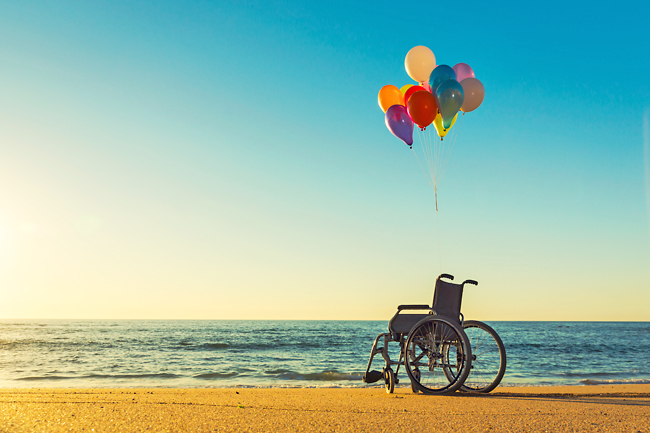
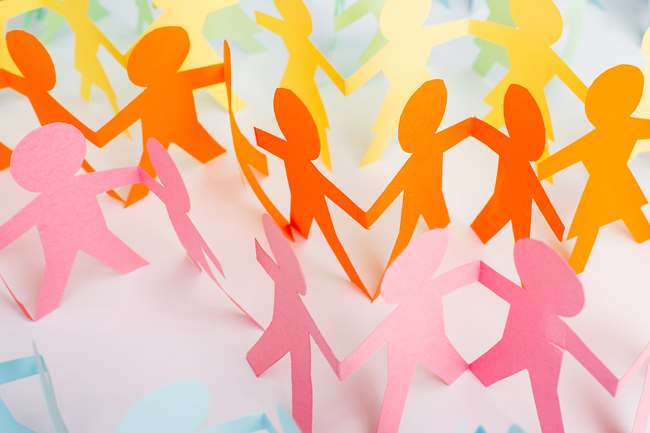
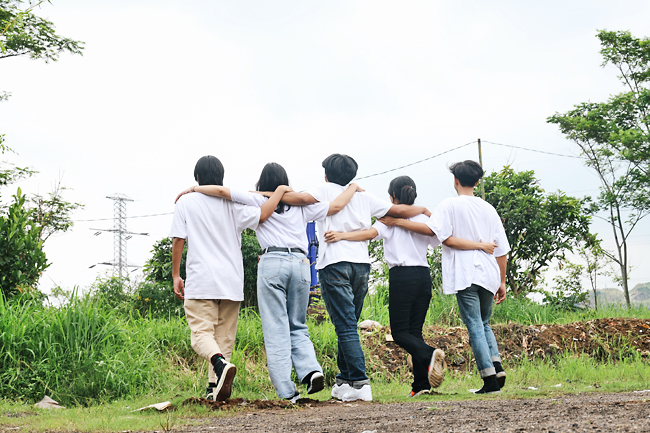
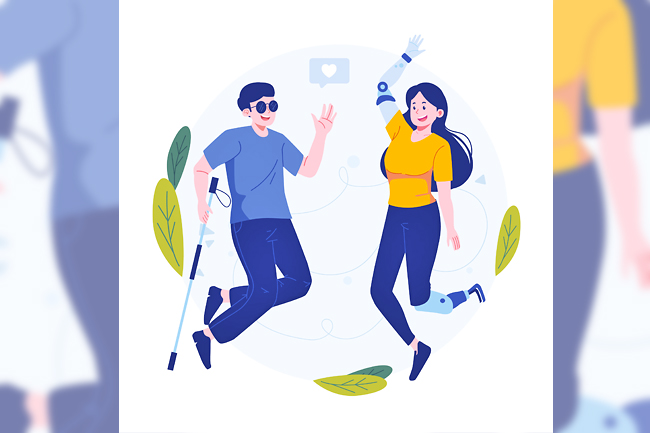
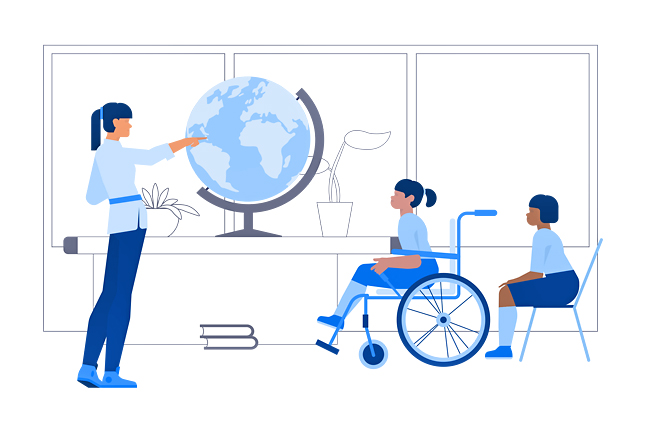
In Brunei Darussalam, efforts to foster inclusive education have been growing, with the Ministry of Education implementing the Special Education Needs (SEN) Programme. This initiative supports children with disabilities through Individualised Education Plans (IEPs) and resource centres that provide specialised learning tools and trained staff.
Additionally, collaborations with non-governmental organisations, such as the Society for the Management of Autism Related issues in Training, Education and Resources (SMARTER) Brunei, ensure that children with autism receive tailored educational support. These initiatives exemplify the Sultanate’s commitment to creating an education system where every learner, regardless of their abilities, can thrive.
TECHNOLOGY: A DOUBLE-EDGED SWORD
Emerging technologies offer unprecedented opportunities for inclusion but also pose significant risks. The Sultanate has also made strides to ensure that technology supports persons with disabilities.
Initiatives such as the provision of assistive technologies in schools and workplaces help bridge the gap, enabling individuals to overcome barriers in communication and mobility.
Brunei’s government has also begun exploring digital accessibility frameworks to ensure that online platforms and public services are more user-friendly for people with disabilities.
Such efforts reflect the Sultanate’s commitment to leveraging innovation to create a more inclusive society.
However, artificial intelligence (AI), for instance, could perpetuate biases if developed without ethical safeguards. To address these challenges, UNESCO has established guidelines like the Recommendations on the Ethics of Artificial Intelligence and Open Science, ensuring that advancements uphold, rather than undermine, the rights of persons with disabilities.
In Somalia, the UN Development Programme (UNDP) is leveraging technology through its Disability Digital Lab.
This initiative provides digital tools and training, empowering persons with disabilities to access opportunities in a rapidly evolving digital landscape. Such efforts demonstrate the transformative potential of technology when designed with inclusivity in mind.
AMPLIFYING PARTICIPATION
Representation matters. UNDP Administrator Achim Steiner stressed that barriers to political participation – such as inaccessible voting facilities and discriminatory practices – must be dismantled.
The right to participate in governance is not just a privilege but a cornerstone of inclusive societies.
As Steiner noted, “Inclusion goes beyond the ballot box; it requires governance systems where everybody can be heard and represented.” Beyond governance and education, sports have emerged as a powerful platform for disability inclusion.
As such, efforts to promote inclusivity in sports are gaining momentum in Brunei. Initiatives like the Special Olympics Brunei Darussalam provide opportunities for athletes with disabilities to showcase their talents and participate in regional and international events.
Additionally, local organisations and government bodies under the Ministry of Culture, Youth and Sports have been working together to improve accessibility to sports facilities, ensuring that everyone can engage in physical activities and enjoy the benefits of sport.
These programmes not only foster inclusivity but also empower individuals with disabilities to lead active and fulfilling lives.
An example on a more global scale is this year’s Paris Paralympic Games, which saw the Paralympic torch relay pass through UNESCO Headquarters, symbolising the unity and resilience of the disability community.
The accompanying International Disability Inclusion Conference provided a space for decision-makers and the Paralympic Movement to explore the transformative impact of Para sport.
THE BROADER PICTURE OF DISABILITY
Disability is a complex and evolving concept. According to the Convention on the Rights of Persons with Disabilities (CRPD), it arises from the interaction between individuals with impairments and societal barriers that hinder their full participation. These barriers are not just physical but also attitudinal and policy-driven. The statistics paint a sobering picture.
Children with disabilities are almost four times more likely to experience violence than their peers. Adults with disabilities face a 1.5 times higher risk of violence, a figure that escalates to nearly four times for those with mental health conditions. Over 50 per cent of persons with disabilities cannot afford essential healthcare services.
Despite these challenges, evidence shows that when barriers are removed, entire communities benefit. Accessibility and inclusion are not merely aspirational goals as they are fundamental rights and prerequisites for achieving progress. By empowering persons with disabilities to participate fully in societal life, we create a world that values diversity and innovation.
The CRPD’s Article 9 underscores the necessity of accessibility in all aspects of life.
From public transport and information technology to justice systems and healthcare, ensuring equal access is a critical step towards realising an inclusive society.
In Brunei Darussalam, several measures have been implemented to improve accessibility.
For example, public facilities such as government buildings and mosques are increasingly being retrofitted with ramps, lifts, and other features to accommodate individuals with mobility challenges.
Additionally, the introduction of accessible transport services, including wheelchair-friendly buses, marks a step forward in bridging mobility gaps. Policies under the Persons with Disabilities Order 2021 also aim to standardise accessibility standards, ensuring that new infrastructure projects incorporate inclusive designs from the outset.
These efforts underscore Brunei’s commitment to fostering an environment where all citizens can navigate and participate in society with dignity.
A SHARED RESPONSIBILITY
The road to inclusivity requires collective action. As Guterres stated, “In every community, persons with disabilities are changemakers and peacemakers. They are also leaders.”
On this International Day of Persons with Disabilities, let us commit to amplifying their voices and dismantling the barriers that hinder their potential. Through education, technology, political representation, and community support, we can build a world where difference is celebrated and equity is the norm.
The vision of an inclusive and sustainable future is not a distant aspiration; it is a responsibility we must all share today. By embracing this challenge, we honour not only the rights of persons with disabilities but also the principles of justice and humanity that define us all. – Features Desk





